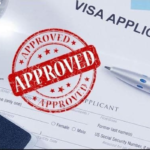“Learn how to get approved quickly for payday loans in United States.
Discover the fast and easy process to secure payday loans from trusted lenders today.”

Introduction
Payday loans are short-term, small-dollar loans designed to help people cover urgent expenses until their next paycheck. They’re a popular choice for those who need quick cash for unexpected bills or emergencies, like car repairs or medical costs. Payday loans are often accessible with minimal requirements, making them a fast solution when traditional loans may not be an option. Trusted lenders have made payday loans a reliable, easy-to-obtain choice for managing financial gaps without the lengthy application process of traditional loans. For many, payday loans offer a simple and trusted option to handle urgent financial needs.
This guide will help you navigate the payday loan approval process and increase your chances of fast approval. Payday loans are designed for convenience and speed, which makes them ideal for urgent financial needs. To streamline your application, ensure you have all required information ready, like proof of income and identification. Double-check your details for accuracy, as errors can slow down processing. Choose a reputable lender known for quick approvals, and consider applying during business hours for faster responses. By following these steps, you can maximize your chances of a smooth, quick payday loan approval.
Popular Trusted Lenders
MoneyMutual- Top Payday Loan Providers Overall,
Viva Payday Loans – Connect to Loans Within 15 Minutes,
BadCreditLoans- Simple Sign-Up Process,
247FastFund- Best for Guaranteed Approval,
CashUSA- Cash Deposits as Quickly as the Next Day,
247 Credit Now – Loans Up to $35,000,
PersonalLoans.com – Best for Flexible Repayment Options, Brighter Loans- Best for Personalized Service
eLoanWarehouse- A quick and trusted option for those needing emergency funds.
Understanding Payday Loans and Their Requirements
Payday loans are short-term, small-dollar loans intended to help borrowers cover urgent expenses until their next paycheck arrives. They’re designed to offer a quick cash solution for unexpected costs, such as emergency repairs or medical bills. Payday loans come with a simple, fast application process, usually requiring just basic information and a steady income source. This straightforward approach makes payday loans a popular choice for those in need of fast financial relief, as trusted lenders aim to make funds easily accessible when time is critical.
List common approval requirements, such as proof of income, age (typically 18+), a checking account, and identification.
These requirements ensure applicants are in a position to repay the loan, thus increasing the chances of approval.
Preparing Essential Documents and Information
Documents Needed :
Recent pay stubs, bank statements, and government-issued ID. Being organized with these documents will speed up the application process.
the accuracy of all provided information (such as bank account details) to avoid delays. Highlight that payday loans applications can proceed faster when everything is submitted correctly from the start.
Having the correct documents ready allows the lenders payday loan process to go smoothly, as incomplete or incorrect applications are a common cause of delays.
Tips for a Fast Approval Process
Streamlining Approval:
There are specific ways to ensure a quick approval with lenders like MoneyMutul,Viva Payday Loans, BadcreditLoans, 24/7FastFund, CashUSA, 24/7 CreditNow, PersonalLoans.com, Brighter Loans, such as applying online and using any available pre-qualification tools.
Online Application Advantages:
The process provides a user-friendly online platform, which enables applicants to apply anytime, avoiding the need for in-person visits and reducing wait times.

Common Mistakes to Avoid
Typical Errors: Common mistakes that can lead to delays in approval, such as providing incorrect bank account information, incomplete employment details, or missing documentation.
Making sure all requirements are met can help expedite the approval for payday loans through the Lenders.
Outcome of Avoiding Mistakes: A complete and accurate application increases the likelihood of fast approval payday loans.
Understanding Approval Timeframes
Expected Timeframes: Payday loans are known for their quick processing times, making them a convenient choice when immediate cash is needed. From the moment you submit your application, many payday lenders aim to review and approve applications within a few hours. For applications submitted during business hours, approval can often happen on the same day. Once approved, funds are usually disbursed quickly—often by the next business day, depending on the lender’s process and your bank’s policies.
Factors Influencing Speed: Several factors can affect the speed of approval and disbursement. The time of day you submit your application matters; applications submitted earlier in the day during business hours are typically processed faster than those submitted late in the evening. Additionally, the completeness of your application plays a big role. Providing accurate information, including your income details and contact information, helps ensure your application is processed without delays. Lenders may need to verify information if something is missing or unclear, which can slow down the process. By being prepared and double-checking your application, you can improve your chances of a quick approval and access to the funds you need.
Forecloser process of existing payday loan in United states
Closing an existing payday loan in the United States involves a structured approach to repay the outstanding balance and, ideally, reduce additional fees or interest. Successfully closing a payday loan can prevent further debt accumulation, improve credit health, and provide peace of mind. Here’s a detailed guide on the steps to close out a payday loan:
Step 1: Review Loan Terms and Outstanding Balance
The first step is to review the loan agreement and understand the total balance, including any interest, fees, and repayment due dates. This information helps you confirm the exact amount needed to close the loan and identify any penalties for late payment. Ensure you are aware of any fees associated with paying off the loan early, as some lenders impose extra charges for early repayment.
Step 2: Contact the Lender
Communicate directly with your payday loan lender to discuss the repayment options. This conversation is an opportunity to ask about any available payment plans, early payoff options, or settlements that might reduce the total owed amount. Some lenders may offer reduced payment plans or a lump-sum settlement for those looking to close their loan quickly. During this call, ask for documentation of your balance and ensure they provide confirmation of loan closure once payments are completed.
Step 3: Consider Loan Extensions or Payment Plans
If repaying the full loan amount in a single payment is challenging, ask the lender if they offer a structured payment plan. Many lenders provide installment options that spread the repayment over a few weeks or months, allowing for manageable payments. Some states mandate lenders to offer extended payment plans at no extra cost, which can be beneficial for borrowers who need more time to close their loan.
Step 4: Verify Account Debits and Manage Repayments
Most payday loan agreements include automatic bank account withdrawals on the due date. Ensure that there are sufficient funds in your account to cover payments as scheduled to avoid overdraft fees and further penalties. Monitor your account closely, as some lenders attempt multiple withdrawals in case of insufficient funds, which can result in multiple fees. If you have made arrangements for a payment plan or manual payments, confirm with the lender that auto-debits are paused to prevent duplicate charges.
Step 5: Explore Alternative Funding Options for Loan Repayment
If you’re struggling to repay a payday loan in full, consider other financial options, such as borrowing from family or friends, taking out a low-interest personal loan, or using a credit card with lower interest. Some nonprofit credit counseling agencies also provide payday loan relief services, helping borrowers consolidate or manage their debt to close payday loans more easily. These options can often save money in the long run by reducing high-interest fees associated with payday loans.
Step 6: Obtain Proof of Loan Closure
Once the loan is paid off, request written confirmation from the lender that the account is closed, and the balance is zero. This documentation protects you in case of future errors or attempts by the lender to collect additional funds. Proof of loan closure can also be valuable when checking your credit report to ensure the loan is accurately reported as closed.
Step 7: Monitor Your Credit and Address Discrepancies
Payday loans are often reported to credit bureaus, so ensure your credit report reflects the loan as paid in full and closed. Check your credit report a few weeks after closing the loan to confirm there are no discrepancies or outstanding balances recorded. If you notice any errors, contact both the lender and the credit bureau to correct the information.
Tips for Avoiding Payday Loans in the Future
Closing a payday loan can provide financial relief, but it’s essential to plan for future financial stability to avoid reliance on high-interest loans. Building an emergency fund, exploring other types of loans, or consulting a financial advisor can help you create a sustainable financial plan. Additionally, many local organizations and nonprofits offer free financial counseling to help with budgeting, debt management, and long-term savings.
Default or Unpaid existing payday loan in United states
The unpaid payday loans in the United States differs from traditional foreclosure on assets like homes. Payday loans are unsecured loans, meaning they don’t require collateral like property or vehicles. When a borrower is unable to repay a payday loan, the lender cannot take direct ownership of physical assets. Instead, the lender uses specific collections and legal steps to recover the owed funds.
Step 1: Loan Default
When a payday loan payment is missed, the loan goes into “default” status. Most payday lenders provide a short grace period, but continued nonpayment typically results in additional fees or interest. During this initial phase, lenders may contact the borrower to request payment and may offer options like a payment plan or loan extension.
Step 2: Collections Efforts
If payment is not made within a specified period, the lender may escalate efforts by contacting the borrower via phone, email, or mail. The lender might also attempt to debit the borrower’s bank account if the borrower authorized direct withdrawal at the time of the loan. Repeated collection attempts can lead to additional fees, increasing the total balance owed.
Step 3: Selling the Debt to a Collection Agency
In many cases, payday lenders sell defaulted loans to collection agencies. These agencies purchase the debt at a reduced rate, then take over the collection efforts. Collection agencies may use various tactics to recover the money, including contacting the borrower frequently and negotiating payment plans. They may also report the debt to credit bureaus, which can negatively impact the borrower’s credit score.
Step 4: Legal Action
If the collection agency is unable to recover the debt, they might pursue legal action. In some states, lenders or collection agencies can file a lawsuit to obtain a court judgment, which allows them to collect the debt through wage garnishment, liens, or bank account levies. Wage garnishment enables the agency to take a portion of the borrower’s paycheck until the debt is paid, though this practice is restricted in some states. Before any garnishment or account levy occurs, the borrower is usually notified and given a chance to respond or settle the debt.
Borrower Protections
It’s important to note that the Fair Debt Collection Practices Act (FDCPA) protects borrowers from aggressive or abusive collection practices. Lenders and collection agencies must follow ethical standards, which include prohibitions against harassment, threatening legal action they don’t intend to pursue, or contacting borrowers at odd hours. Additionally, each state has specific regulations around payday loans, and some states have imposed limits or restrictions on payday lending to prevent cycles of debt.
Avoiding Foreclosure on Payday Loans
Borrowers can sometimes avoid the foreclosure process by negotiating directly with lenders, asking for extensions, or seeking assistance from credit counseling services. Many lenders may be open to discussing alternative arrangements to recover the funds without initiating legal action. Some borrowers also consider debt consolidation or loan refinancing options to manage payday loan debt.
Conclusion
The foreclosure process for payday loans in the United States emphasizes collections and legal actions rather than repossession of physical assets. Borrowers struggling with payday loan repayment should be aware of their rights and consider options like negotiating with lenders or consulting with credit counselors. Understanding the steps in the payday loan foreclosure process can help borrowers make informed decisions and take proactive steps to address debt before it escalates.











